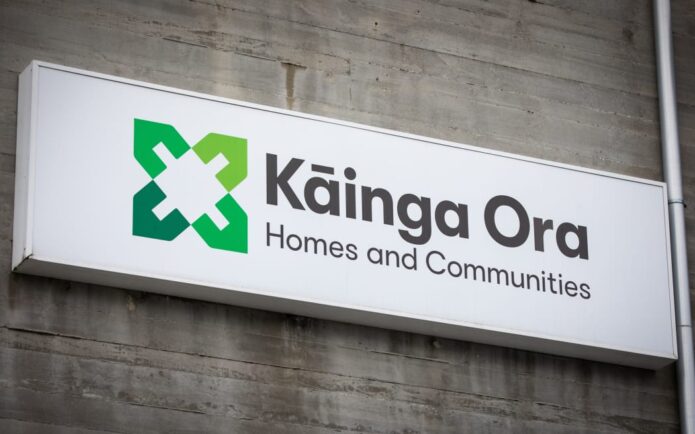PHOTO: Female real estate agent. iStock
Female Real Estate Agents: Facing Sexual Harassment and Vulnerability
The Dangers and Lack of Protections in the Real Estate Industry
Most sexual harassment comes from potential clients, and agents say they are vulnerable to abuse in an industry that offers few protections. Sara Ghodsi sold auto parts before moving to San Diego and becoming a real estate agent. She didn’t have to sit in an office all day, made a good income, and had the freedom to work on her own schedule, all of which she enjoyed.
propertynoise.co.nz to launch real estate industry recruitment site
But Ms. Ghodsi also understood it was a very competitive field as the number of agents across the country swelled to a record high. So when a homeowner in the coastal town of Oceanside, Calif., called and said he would consider selling, Ms. Ghodsi, eager to find a property for her client during the pandemic, agreed to meet him at his condominium — alone.
As they talked that afternoon in August 2021, the man began inching his chair closer to hers. Then he reached out, groped her thigh, and forcefully kissed her.
“I kind of blacked out a little,” said Ms. Ghodsi, 37. “I was trying to be calm and collected because I was by myself in a stranger’s house. The door was maybe five feet away, but I had no idea what this guy was capable of doing.”
Across the nation, the overwhelming majority of real estate agents are women — and they are vulnerable to abuse in an industry that offers few protections, demands that they meet clients alone in empty homes, and encourages them to use their appearance to help bring in buyers. Reports of harassment and occasionally physical violence, including rape and even murder, highlight the risks they face.
The National Association of Realtors reports that 66 percent of their members are women. Many were attracted to the field for the same reasons as Ms. Ghodsi: flexible schedules, a workplace that’s almost entirely remote, and a licensing process that can be completed in as little as a few weeks.
But the industry is also structured so that 90 percent of agents are not actually employees of the agencies they work with. They are independent contractors, which means they are not protected under Title VII — the federal law that prohibits discrimination and sexual harassment in the workplace.
SPONSORED: Looking for a real estate database from $99 plus gst? | SALE
It also means that many real estate agencies that rely on these agents for the vast majority of their income do not feel obligated — or even inclined — to offer them any kind of institutional protection or training. For most of the women out there, it is up to them to come up with safety strategies like sharing their location with a family member or friend, insisting on references before meeting a client — or even carrying a firearm for protection.
And so, nearly six years after the #MeToo movement ignited a global reckoning about sexual harassment and assault, hundreds of thousands of women across the country are working in an industry that resists new measures to protect the women in its ranks.
“That world is pretty much the wild, wild west,” said Kimberly Perlin, a complex trauma therapist in Towson, Md., who has treated several real estate agents who were sexually assaulted at work. “Anybody can call up and say they have money and want a house, including sexual predators. And in a house, you have an unattended space, and an inherent power balance because the salesperson wants the sale and the buyer knows it.”
The National Association of Realtors, a trade organization representing 1.5 million members, has been resistant to require any sort of safety training of its members.
Classes in its Realtor safety program, which includes webinars on best practices for safety, remain optional. On the group’s website, the program makes safety a matter of personal precautions, advising agents to avoid showing houses after dark and always ensure that properties have reliable cellphone service.
“It’s hard to force people to take certain things,” said Tracy Kasper, president-elect of the National Association of Realtors, of safety training. “Could that become part of what we make mandatory? It could. Have we done it yet? No we haven’t.”
Agents say the solution requires industrywide buy-in, and some recommended universal background checks for buyers and making mandatory safety trainings a contingency for all brokerages’ memberships in trade organizations. Others suggested that female agents have an option to ask for an escort when client meetings feel unsafe, with their brokerages covering the cost.
Ms. Ghodsi began carrying a Taser gun after her encounter. She filed a police report but declined to press charges against her aggressor. “I just wanted it on file,” she said, “so it’s on record.”
It continues to affect both her mental health and her career.
“I feel like I haven’t been able to do my job to my full potential like I was before because I’m scared,” she said.
Younger agents, and those new to the profession, are not always aware of the dangers.
“I never thought about it when I was starting out,” said Rachel DiSalvo, 41, who has been selling homes in New York and New Jersey for 12 years. “I would meet strangers at vacant homes at night.”
She has faced both sexual harassment while on the job — buyers making innuendos or attempting to grope her — as well as violence. One seller, angry she hadn’t secured him a higher price, took out an ax in front of her and proceeded to attack the lawn sign that bore her picture.
SOURCE: NYTIMES














